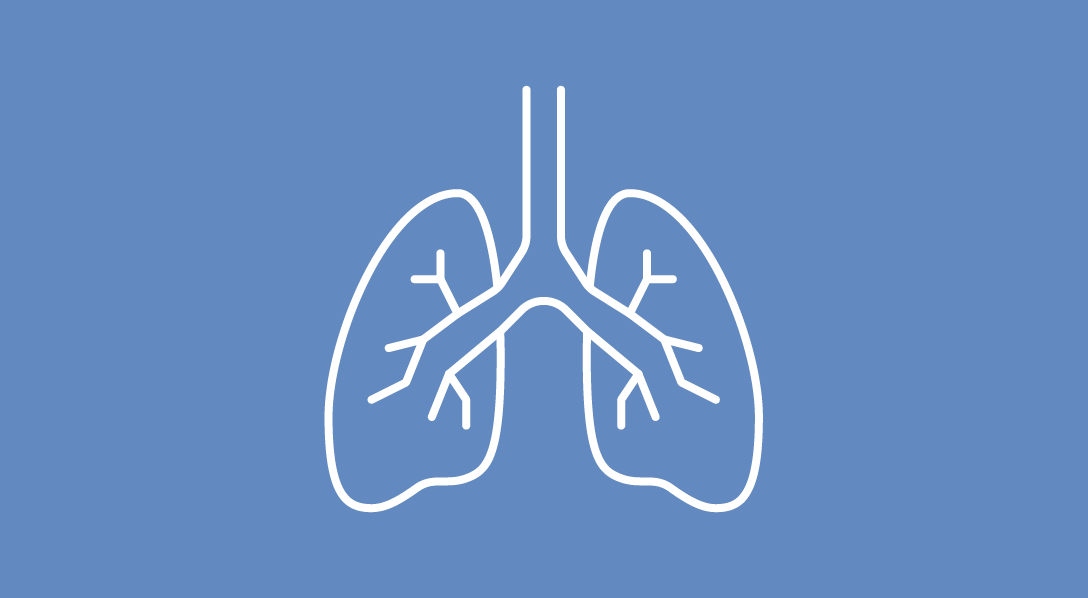Adagrasib Provides Greater Benefit vs Docetaxel in KRAS G12C–Mutant NSCLC
Compared with docetaxel, adagrasib improved progression-free survival and objective response rate in patients with pretreated KRAS G12C–mutant non–small cell lung cancer.
Adagrasib Provides Greater Benefit vs Docetaxel in KRAS G12C–Mutant NSCLC

Single-agent adagrasib (Krazati) significantly improved progression-free survival (PFS) and objective response rate (ORR) compared with docetaxel as second- or later-line treatment in patients with locally advanced or metastatic non–small cell lung cancer (NSCLC) harboring a KRAS G12C mutation, meeting the primary and key secondary end points of the pivotal phase 3 KRYSTAL-12 trial (NCT04685135).1
No new safety signals outside of adagrasib’s known adverse effect (AE) profile occurred with the KRAS G12C inhibitor. The most common AEs associated with this agent include nausea, diarrhea, vomiting, fatigue, musculoskeletal pain, hepatotoxicity, renal impairment, edema, dyspnea, and decreased appetite. The study will continue to evaluate other secondary end points, including overall survival (OS). Bristol Myers Squibb will evaluate the available data, which will be shared at an upcoming medical meeting and shared with regulatory authorities.
“Today’s news is an important reinforcement of the power of a targeted therapy for patients with locally advanced or metastatic KRAS G12C–mutated lung cancer. The FDA approval of [adagrasib] in the United States has allowed us to provide a new treatment option for these patients, and topline results of the KRYSTAL-12 confirmatory study will build greater trust in the medical and patient community,” Abderrahim Oukessou, MD, vice president, global program lead for Krazati at Bristol Myers Squibb, said in a news release. “We are encouraged by the results from KRYSTAL-12 and look forward to helping more patients with KRAS G12C–mutated lung cancer.”
Adagrasib is currently indicated under the accelerated approval pathway for the treatment of patients with KRAS G12C–mutated locally advanced or metastatic NSCLC, as determined by an FDA-approved test, who have received at least 1 prior systemic therapy.2 The agent was also granted conditional marketing authorization for the same population in 2023 by the Medicines and Healthcare products Regulatory Agency, followed by the European Commission in 2024.1
The FDA approval was based on data from the single-arm phase 1/2 KRYSTAL-1 trial (NCT03785249), in which an ORR of 43% (95% CI, 34%-53%) was reported with adagrasib in this patient population. Additionally, the disease control rate (DCR) was 80% (95% CI, 71%-87%), and the median duration of response (DOR) was 8.5 months (95% CI, 6.2-13.8).3
In a pooled efficacy analysis (n = 132) of the phase 1/1b NSCLC and registrational phase 2 NSCLC cohorts of the KRYSTAL-1 study, adagrasib led to an ORR of 44% and a DCR of 81% based on blinded independent central review (BICR). The median DOR was 12.5 months (95% CI, 7.3-not evaluable), and the median OS was 14.1 months (94% CI, 9.2-19.2).3
The confirmatory KRYSTAL-12 trial is an open-label, multicenter, randomized phase 3 trial evaluating adagrasib as monotherapy compared with standard-of-care docetaxel alone in 21-day cycles in patients with KRAS G12C–mutated NSCLC.4
To be eligible for enrollment, patients must have received a histologically or cytologically confirmed diagnosis of NSCLC with a KRAS G12C mutation and be eligible to receive docetaxel. Patients who have evidence of RECIST v1.1–defined disease progression on docetaxel per BICR and an ECOG performance status of 0 to 2 will be allowed to cross over to receive adagrasib.
Patients who received prior treatment with a KRAS G12C inhibitor or have active brain metastases were excluded from enrollment.
The primary end point of the study is PFS as assessed by BICR. Secondary end points include OS, ORR, DOR, and safety, as well as pharmacokinetic parameters, patient-reported outcomes, and quality of life.4
In February 2024, the FDA accepted a supplemental new drug application for priority review seeking the approval of adagrasib in combination with cetuximab (Erbitux) for patients with previously treated, locally advanced or metastatic KRAS G12C–mutated colorectal cancer.5
References
- Bristol Myers Squibb announces pivotal KRYSTAL-12 confirmatory trial evaluating KRAZATI (adagrasib) meets primary endpoint of progression-free survival for patients with pretreated KRAS G12C-mutated locally advanced or metastatic non-small cell lung … News release. Bristol Myers Squibb. March 28, 2024. Accessed March 28, 2024. https://news.bms.com/news/corporate-financial/2024/Bristol-Myers-Squibb-Announces-Pivotal-KRYSTAL-12-Confirmatory-Trial-Evaluating-KRAZATI-adagrasib-Meets-Primary-Endpoint-of-Progression-Free-Survival-for-Patients-with-Pretreated-KRAS-G12C-Mutated-Locally-Advanced-or-Metastatic-Non-Small-Cell-Lung-/default.aspx
- FDA grants accelerated approval to adagrasib for KRAS G12C-mutated NSCLC. FDA. December 12, 2022. Accessed March 28, 2024. https://www.fda.gov/drugs/resources-information-approved-drugs/fda-grants-accelerated-approval-adagrasib-kras-g12c-mutated-nsclc?utm_medium=email&utm_source=govdelivery
- Mirati Therapeutics announces U.S. FDA accelerated approval of Krazati (adagrasib) as a targeted treatment option for patients with locally advanced or metastatic non-small cell lung cancer (NSCLC) with a KRASG12C mutation. News release. Mirati Therapeutics, Inc. December 12, 2022. Accessed March 28, 2024. https://www.prnewswire.com/news-releases/mirati-therapeutics-announces-us-fda-accelerated-approval-of-krazati-adagrasib-as-a-targeted-treatment-option-for-patients-with-locally-advanced-or-metastatic-non-small-cell-lung-cancer-nsclc-with-a-krasg12c-mutation-301700902.html
- Phase 3 study of MRTX849 (adagrasib) vs docetaxel in patients with advanced non-small cell lung cancer with KRAS G12C mutation (KRYSTAL-12). ClinicalTrials.gov. Updated March 28, 2024. Accessed March 28, 2024. https://classic.clinicaltrials.gov/ct2/show/NCT04685135
- U.S. Food and Drug Administration (FDA) accepts supplemental new drug application for Krazati (adagrasib) in combination with cetuximab as a targeted treatment option for patients with previously treated KRAS G12C-mutated locally advanced or... News release. Bristol Myers Squibb. February 20, 2024. Accessed March 28, 2024. https://news.bms.com/news/corporate-financial/2024/U.S.-Food-and-Drug-Administration-FDA-Accepts-Supplemental-New-Drug-Application-for-KRAZATI-adagrasib-in-Combination-with-Cetuximab-as-a-Targeted-Treatment-Option-for-Patients-with-Previously-Treated-KRAS-G12C-Mutated-Locally-Advanced-or/default.aspx#:~:text=In%202022%2C%20the%20FDA%20granted,and%20an%20anti%2DVEGF%20therapy.



